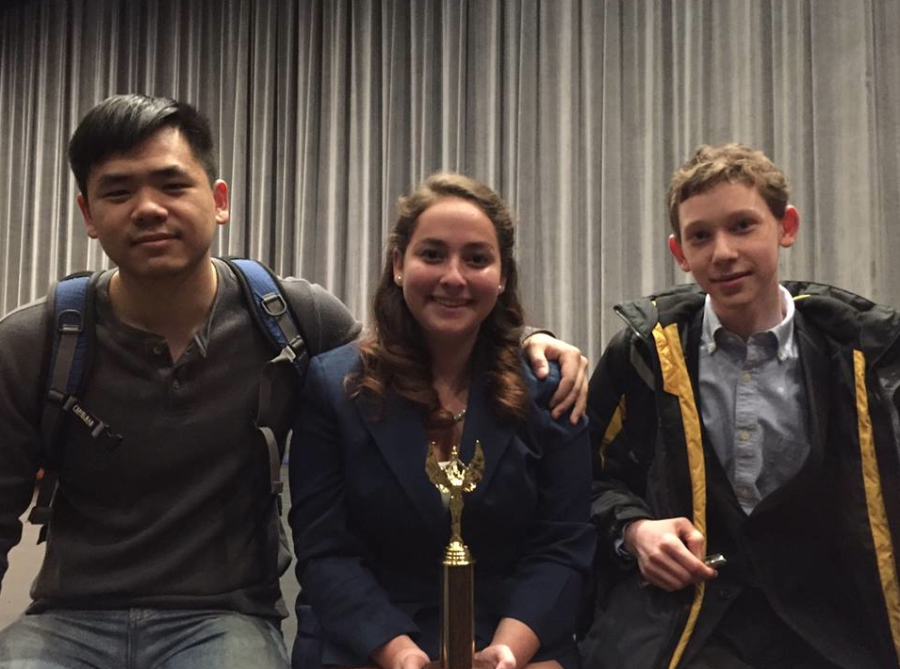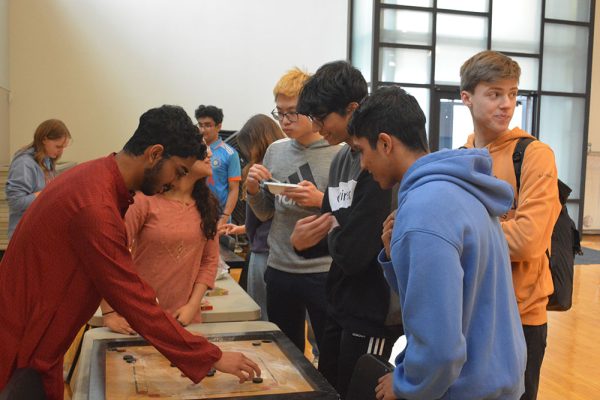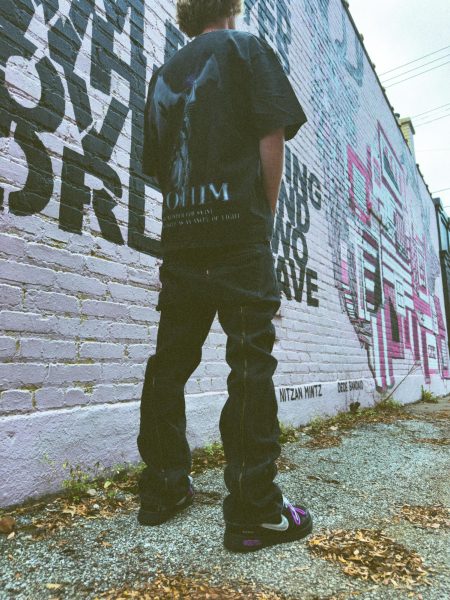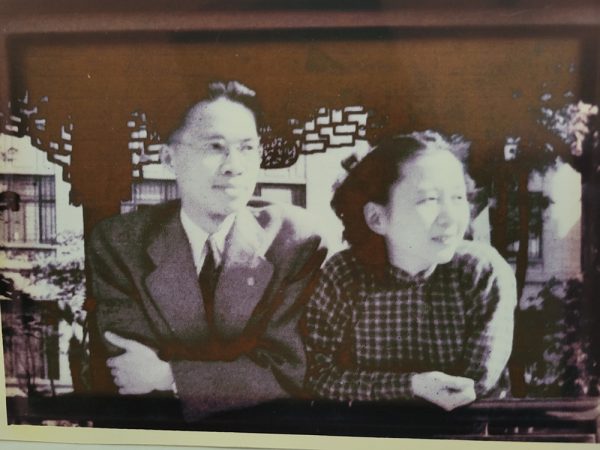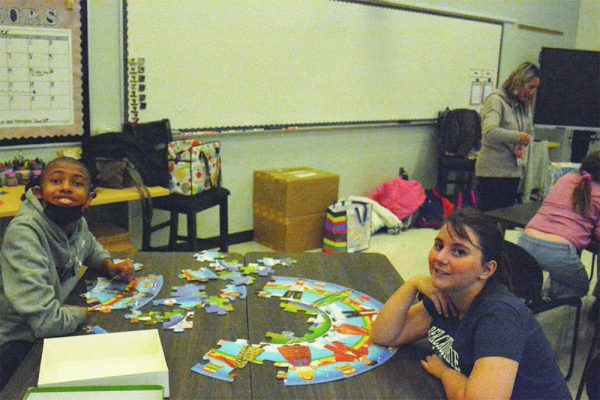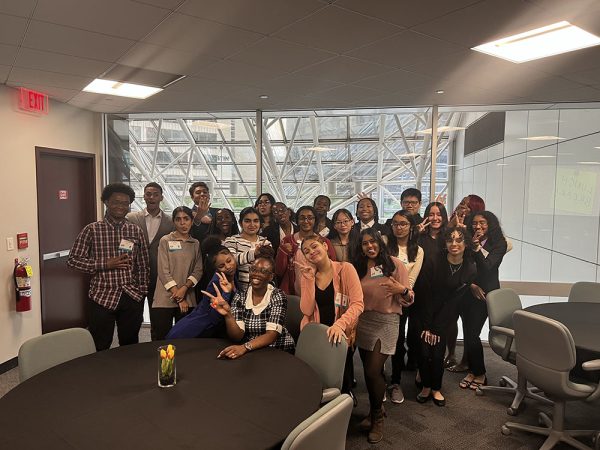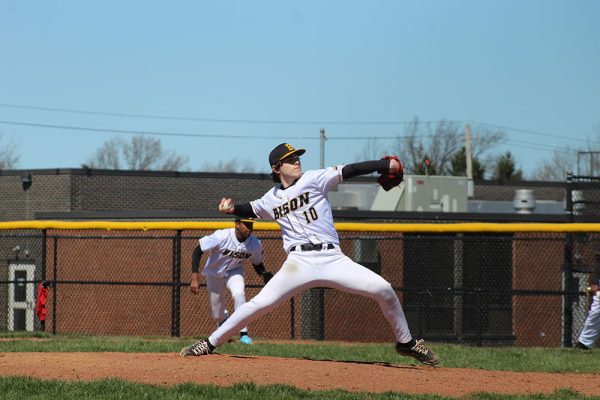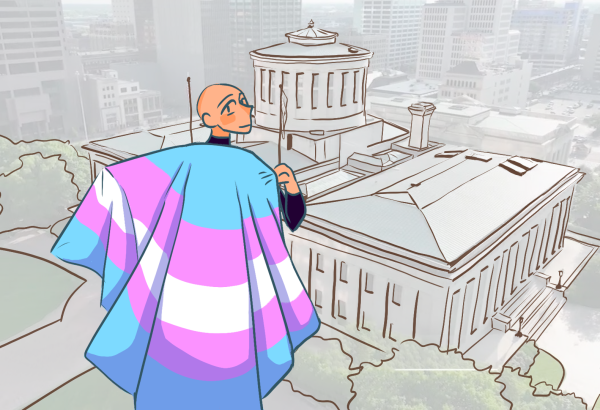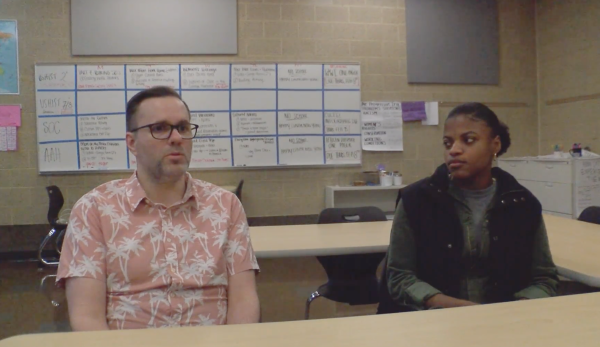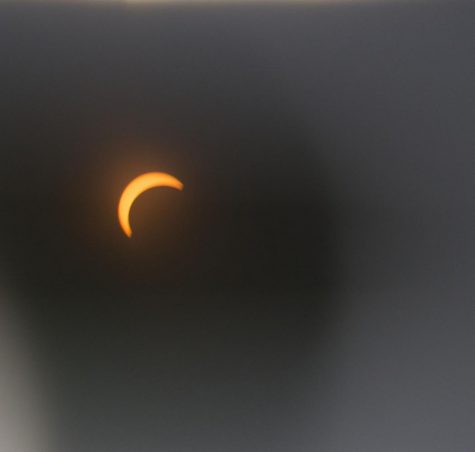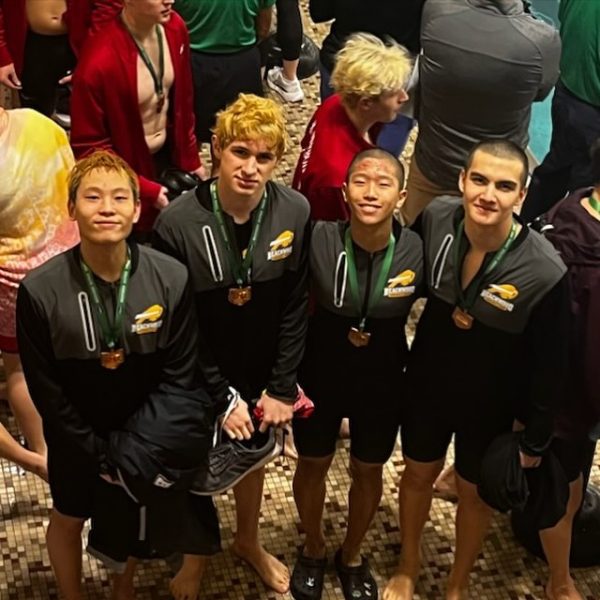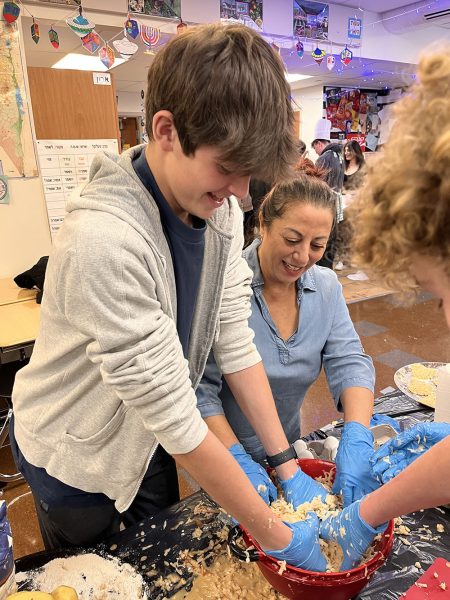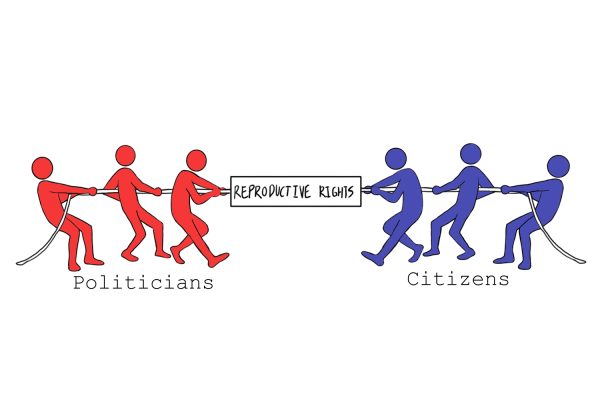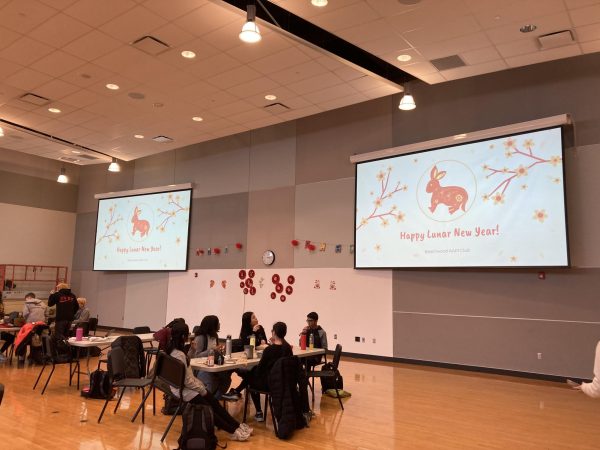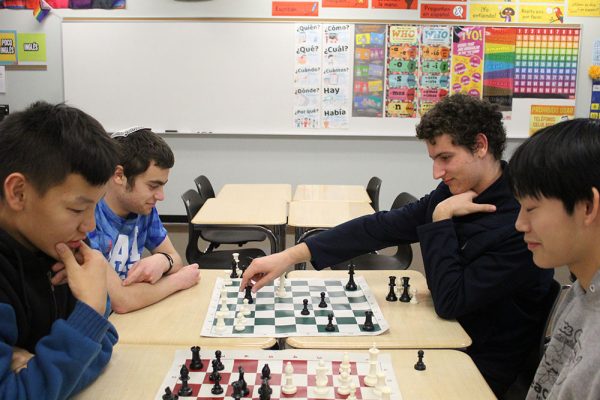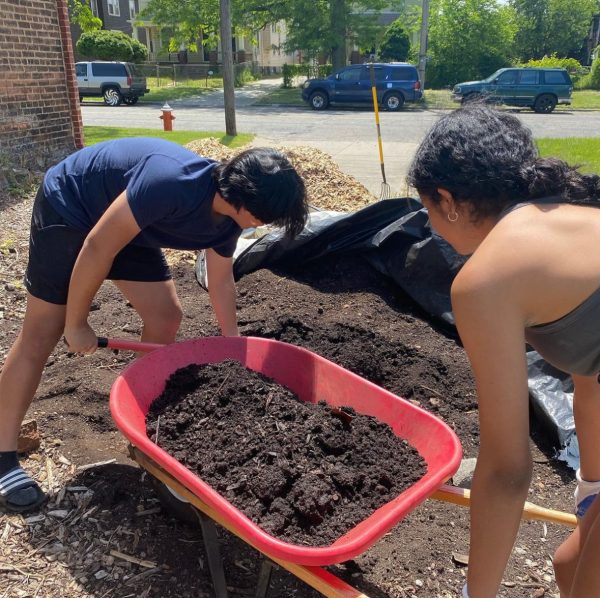Speech & Debate Club Enriches Minds
Speech and debate practice on a Monday afternoon is hectic. The room is loud, as students bounce ideas off one another and crack jokes.
English teacher and head coach Nicole Majercak sits at her desk, discussing upcoming competitions with senior Simon Perilla, who is Co-President with fellow senior Samantha Shaffer.
Assistant coach Jove Tse sits on a table in front of Majercak, helping debaters research their topics. “Speechies” are on the other side of the room, sharing snacks and preparing their work.
Tse is a 2011 BHS grad who competed at public forum and congressional debate throughout his high school career. In fact, he was one of the students who restarted Beachwood’s team.
[Colleges] love to look at the resume of debate student. It really does teach you a lot of the critical thinking skills that [high] schools nowadays don’t really emphasize as much.
— Assistant Coach Jove Tse
“I helped develop the team with [BHS alum] Matt Baron, who did a lot of the foundational work,” he said. “I’m impressed. Honestly, I didn’t think it would still be here by the time I [graduated].”
On Monday, students group together by event in order to write and edit their speeches. On Fridays, they run through the speeches, working on delivery.
“We divide into the different events, so public forum is in one room, congress is in another classroom and speech events are in the English office,” Majercak said.
The speech and debate club offers many options for competition. BHS competes in six of the 11 events offered at local tournaments. Of these six events, Majercak said congressional debate is BHS’s most decorated event.
“Congress is the event that we have historically done best at,” she said. “[On the other hand,] we also had [Class of 2013 grad Jessie Gill], a two-time state champion in humorous interpretation. We have numerous public forum teams that have also placed nationally. We’ve done pretty great in all events. … Most recently, congress has been our strong suit.”
Perilla, who competes in congress, said the event is modeled after the U.S. Congress.
“The bills or legislation we debate really wouldn’t be out of place in the U.S. Senate or the U.S. House of Representatives,” he said. “What we do is debate the merits of the bill — why it should pass or why it should fail.”
“It’s very formal,” he added. “We follow parliamentary procedure, a very specific set of instruction for absolutely everything that goes on in the competition.”
Shaffer currently participates in original oratory and program oral interpretation and has placed at multiple tournaments this year. In original oratory, Shaffer placed third at the Vermillion competition, 13th at the Glenbrooks Tournament, second at Chagrin Falls, third at Lincoln-West, 16th at the Florida Blue Key competition and 15th at the Yale University tournament.
Shaffer also competed in the 2015 George Mason University Patriot Games in Fairfax, Virginia, which took place on Dec. 4 through Dec. 6.
“I placed 12th in the nation for original oratory,” she said. “It’s the best that I’ve done so far. I was the only [Beachwood student] who went to that tournament, but I still had a lot of fun.”
In original oratory, competitors prepare and memorize a ten-minute speech on topic of their choice. Speeches are expected to provide examples and a solution to the problem.
“My topic this year is self-sabotage,” Shaffer said. “We are our own worst enemies. I talk about … rationalizing poor choices and avoiding risky ones. I provide some examples and show the harm, and I tell people how we can fix it.”
Program oral interpretation is another speech event where one takes sections of prose, poetry, comedy and drama of different authors and combines them into one program.
This year, the team is composed mostly of freshmen, Perilla said.
“It’s really been hard, but it’s also kind of uplifting,” he said. “Now we have those freshmen who are interested, who are passionate and talented. It’s nice, because even though I have to do all the work, I know that the team will carry on.”
Freshman Sanchari Chakrabarti competes in public forum. This is a team event that advocates either for or against a new topic each month. A pair of students argue with another pair of students, in an effort to convince the competition’s judge.
Chakrabarti said this event takes a great deal of effort to succeed.
“There is a lot of research and practice involved,” she said.
Tse said there are numerous benefits of participating in debate.
“[Colleges] love to look at the resume of a debate student,” he said. “It really does teach you a lot of the critical thinking skills that [high] schools nowadays don’t really emphasize as much.”
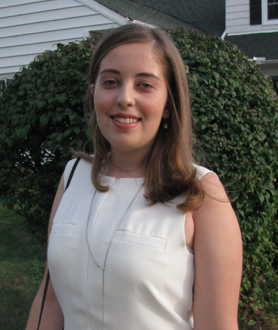
Senior Dalia Zullig had been the Online Editor-in-Chief for three years and is now the Editor-in-Chief. She enjoys writing features the most and runs...



